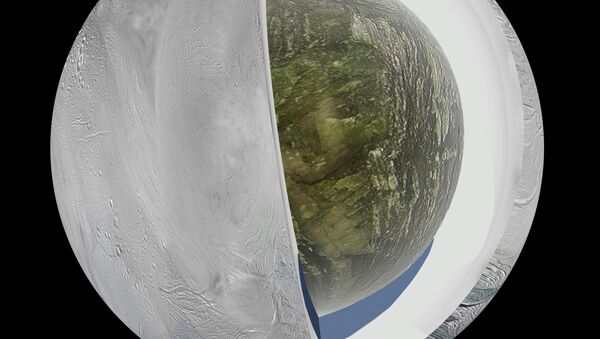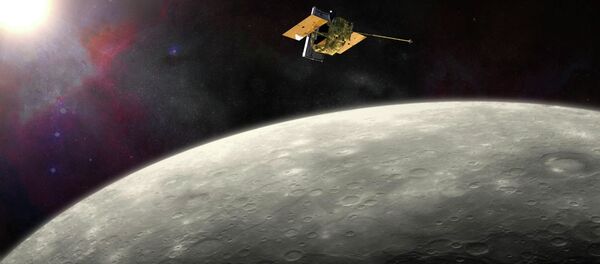The announcement follows news that active hydrothermal vents likely exist on Enceladus' seafloor, suggesting that conditions there could be similar to those that gave rise to some of the first lifeforms on Earth.
Judging by Enceladus' powerful geysers that continuously blast plumes containing significant amounts of water, scientists believe there is an underground ocean there.
Enceladus' subsurface sea contains dissolved sodium chloride (NaCl) – basic table salt – just as Earth's oceans do, researchers said. But it is also full of sodium carbonate, which is also known as washing soda or soda ash.
The presence of sodium carbonate makes this alien body of water less similar to the Atlantic or Pacific oceans, and more like so-called “soda lakes,” researchers said. One such soda lake, Mono Lake in California, supports a variety of lifeforms, including brine shrimp and many different types of microbe.
Researchers suggest that the subsurface ocean's high pH level is generated by a process called serpentization, in which certain kinds of metallic rocks from Enceladus' upper mantle are transformed into new minerals via interactions with water.
In addition to raising pH, serpentization results in the production of molecular hydrogen – a potential source of chemical energy for any lifeforms that may exist in the underground sea, researchers said.
"Molecular hydrogen can both drive the formation of organic compounds like amino acids that may lead to the origin of life, and serve as food for microbial life such as methane-producing organisms," study lead author Christopher Glein, of the Carnegie Institution for Science in Washington, said in a statement.
"As such, serpentinization provides a link between geological processes and biological processes," he added. "The discovery of serpentinization makes Enceladus an even more promising candidate for a separate genesis of life."





